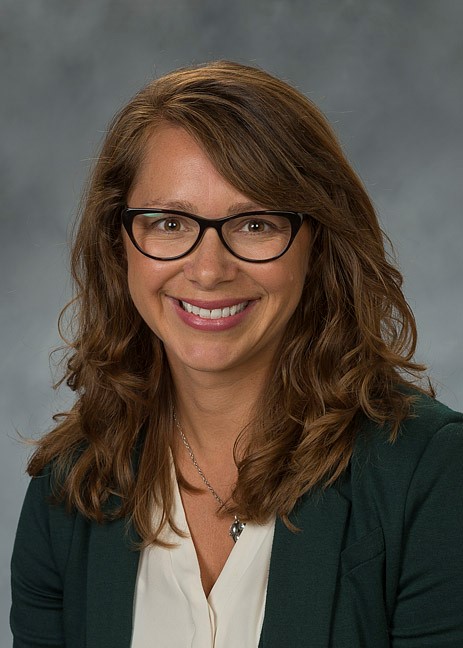 Assistant Professor of Special Education Cindy Collado is the program coordinator for the relaunched Early Childhood Special Education credential.
Assistant Professor of Special Education Cindy Collado is the program coordinator for the relaunched Early Childhood Special Education credential.Sacramento State has relaunched its Early Childhood Special Education credential program, aiming to fill a critical statewide need for teachers trained to work specifically with children with disabilities from birth through kindergarten.
The two-year program, which will start this fall with a cohort of about 20 students, will be offered fully online, making it the only distance-learning program for early childhood special education in the state. It is designed for teachers or teaching professionals who are interested in working with children from birth to age 3 as early interventionists, or who are interested in working in preschool and kindergarten settings. The program had been discontinued several years ago because of faculty retirements.
Sacramento State’s credential will be unique for its focus on what Cindy Collado, program coordinator and assistant professor of Special Education, calls a “family service approach, which means all the coursework is focused on helping candidates learn the experience of the families, how to integrate them into supporting their child with a disability, and how to develop programs that are focused on the family’s needs, not just the child’s needs.”
In addition, students will benefit from the emphasis all of Sacramento State’s special education programs place on including young children with disabilities in programs and general education classrooms. Research indicates the inclusive approach leads to better outcomes for children than using separate programs and classrooms.
“We’re teaching our students what the current practice is while instilling in them this activist approach to be leaders for change within their programs' schools," Collado said.
Improving services to young children and students with disabilities by stressing inclusivity supports the desire to help their students "grow up to be adults who are more included in society, and that starts with our schools.”
In addition to regular coursework, students also will complete two student-teaching experiences. The first, during the summer after the first year, will be with an early-intervention program that provides home-based services to families with infants and toddlers with disabilities. During their second year, students will student teach in a special-education preschool classroom. The program also offers an intern option for candidates interested in completing these experiences while also working as the teacher full time.
There has been an increase locally in the number of preschool programs, and a nationwide rise in autism and other communication delays in children, Collado said, highlighting the need for teachers and other educators trained to work with young populations.
“The Sacramento area especially was lacking in a strong credential program for early childhood special education,” Collado said. “There is also a huge push nationally for an increased focus on intervening early.”
The fully online nature of the program will make it accessible to individuals across the state, an increased value in rural areas where teachers have limited access to this kind of specialized training.
“There are very few early childhood special-education programs in Northern California,” said Stephanie Biagetti, chair of teaching credentials in College of Education. “With a shortage of early childhood special-education teachers throughout California, restarting this program will increase the number of teachers who can effectively teach in inclusive pre-school settings and support families who have children with disabilities from birth through kindergarten.”
Visit the Early Childhood Special Education Teacher Credential Program web page for more information. - Jonathan Morales
Related stories:
